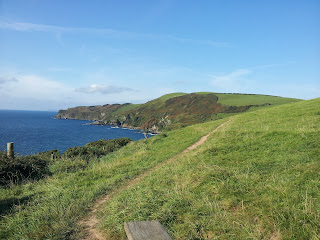Facebook has identified
twenty highlights of my 2012. But Facebook doesn't know about all
of my highlights (neither about my downs) because I don't share them
on Facebook. It has picked up the fact that there was something going
on in the middle of May, and it has noted that I had a Cornwall
holiday. But it doesn't understand that the photo album dedicated to
Miso wasn't exactly a highlight.
My sixtieth birthday was
doubtless a highlight, but apart from that it wasn't a happy year.
But it is almost over, and I have a lucky memory that only stores
good things.
Facebook hasn't picked up
that I have totally changed my attitude toward clothes and learned
thirty-nine ways of tying a scarf. If possible, this was a more
important highlight than my birthday, or at least it has left more
impact. I will never ever wear black again unless it is dictated by
the dress code. Speaking of which, I graduated last summer and have
now a MA from Cambridge. Not that I know what to do with it.
Work has been good, and I
have won some important battles that will make the coming years
better still. My first Cambridge PhD student has successfully
completed. My other students are making progress, publishing
articles, attending conferences, actually hosting a conference! They
are all so brilliant and a pleasure to work with. (And I have
wonderful colleagues too).
I have finished a book
that will hopefully appear next year, and a co-edited book came out
in September. Also a couple of articles and chapters that I am happy
with.
I have cut down on travel
and, apart from Sweden for my birthday, have only been to Germany,
Norway and Spain, all for work. And in Scotland if you count it as a
separate country. Our children have visited regularly. In February we
had an invasion of four grandchildren. Julia and Pontus visited
several times, as did Anton, and Lisa with two boys was here
recently. And our dear friend Norton Juster stayed with us for some
days in May.
I am now a proud owner and
user of a smartphone (thanks to the kids) and an iPad (my own
venture). I cannot imagine how I survived before.
I have already shared some of the best books I read this year. The best movie I saw this year was Hugo. The best theatre show I saw this year was Matilda. The best concert was Murray Perahia. The best exhibition was Literary Landscapes at the British Library.
This past summer, my
garden started looking the way I want it. Still a lot to be done, but
I didn't have to plant annuals to fill the gaps. The strawberries
were watery because of too much rain, but we had three harvests of
raspberries. I planted some new roses. We bought an electric
lawnmower. We built a new fence.
I have made some new room boxes, added to the existing dollhouses and started a dollhouse blog.
And of course our precious
Miranda came to us this year.
Photo credit: Pontus Walck











